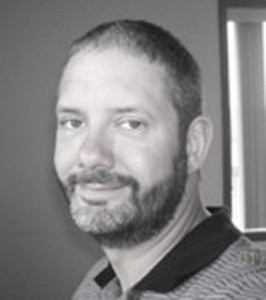By Derick Cranston

Hatred. A strong word, said and expressed in times of extreme anger and bitterness. It can be passed down from generation to generation, resulting in much bloodshed and violence. It can go back hundreds and even thousands of years. We see this in tribal conflicts in parts of Africa, the Middle East and parts of Europe. A movie in the early ‘90s, “Rob Roy,” portrayed the life of a legendary Scottish hero in the 1500s. I had an aunt by marriage, born and raised in Scotland. When I asked my aunt if she had seen the movie she became very angry and told me, no, she had not.
Her voice quivered with rage as she told me Rob Roy was a McCloud, and of all the abuses and criminal activities the McClouds had committed against her ancestors. I was taken aback by her hostility. What had the McClouds done that was so horrible that it started a cycle of retribution and violence? An act which sent a ripple of hatred down through the ages, evident in the reaction of my aunt 500 years later? They were starving to death, and stole some cattle from her ancestors so they could eat.
The hatred you feel only eats away at your peace of mind and does very little to the one you hate. It is a demon lurking within us, feeding on a disordered state of mind and soul. It gnaws away at us, seeking to escape and expresses itself in violence and bloodshed. When this happens the cycle of violence increases and will only produce more hatred, violence and bloodshed. The only way to quench this fire of hatred is through the living water of love.
Love loses itself in awe at the beauty of God’s creation, and the dignity of all of human life. We are all “Children of God” and the “rain falls where it will, on both the good and the wicked.” But love is difficult to define. Can we love not only our neighbors, but our enemies as well? Christ gave us this commandment, and gave his own example of this love when he died upon the cross. But he was God incarnate and we are all frail human beings, prone to weakness.
I cannot tell you exactly what love is, but I think I can tell you what it is not. It is not a sloppy, feel-good emotion which makes us live in a state of ignorant bliss. Love is difficult at times, and requires of us forgiveness and humility. Just ask any couple married for a number of years who have experienced both the ups and downs of married life. Love is being humble enough to know we may be wrong, and being modest enough to forgive.
Sometimes, though, even this is not enough to hold a relationship together. This is because there is a difference between love and reconciling with someone. If a relationship fails, or someone is violent toward you, you can still forgive and love that person … but not be reconciled with him or her. You may not want to re-establish a relationship with that person ever again. If someone robbed me, I can forgive and even love that person as a child of God, but not want him or her near my house or anywhere in my neighborhood. That is OK because when you love, you make peace with yourself. And if you make peace with yourself, the living water of love will quench the fire of hatred and violence.
(Derick Cranston is youth minister for St. Mary Parish in Riverside, Holy Trinity Parish in Richmond and St. Joseph Parish in Wellman. He is going through diaconate formation and can be reached at derickcranston@gmail.com.)







